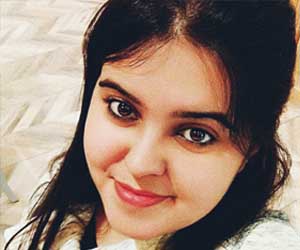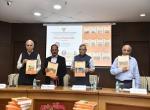Vivekananda International Foundation organized a panel discussion on 30th September 2020 on ‘Holistic Health Care in India: The Way Forward’. The panelists were Dr. Arun Agarwal, Professor of Excellence, Ex-Dean, Maulana Azad Medical College & Former President, Delhi Medical Council, Dr. Tanuja Nesari, Director, All India Institute of Ayurveda, and Dr. Devang J Sutarwala, BHMS, DIP IACH (Greece), Former Guest Lecturer of Organon of Medicine at Netai Charan Chakravarty Homeopathic Medical College & Hospitals. The webinar began with opening remarks by the Chair, Dr. Arvind Gupta, Director, VIF.
Dr. Agarwal initiated the session by explaining the meaning of complementary medicines. He explained that complementary medicines are those medicines which are used with the conventional medicines. He said that the conventional medicines are approved in our legal system be it the allopathic system or in systems like AYUSH in India with different branches. Moving forward, Dr. Agarwal said that complementary medicine refers to the non-mainstream practices, used together with conventional medicines. He added that alternative medicine refers to non-mainstream practices used instead of conventional medicines.
Dr. Agarwal said that integrative medicine is the health care system that uses all appropriate therapeutic approaches– conventional and non-mainstream, within a framework that focuses on health, the therapeutic relationship, and the whole person. Some Complementary and Alternative Medicine (CAM) therapies are now offered in hospitals and are sometimes reimbursed by insurance companies, pointed out Dr. Agrawal. He added that some traditional medical schools, including the North American medical institutions in the Academic Consortium for Integrative Medicine and Health, provide education about integrative medicine and therapies. He suggested that a National Heath interviews survey (2012) indicates that commonly used CAM therapies include: Deep breathing exercises (11%), Yoga, tai chi, and qi gong (10%), Manipulative therapy (8%), Meditation (8%), Yoga (6.1%), said Dr. Agrawal.
Dr. Agarwal said that the mainstream medicine, when possible, bases its practices only on the most conclusive scientific evidence. He explained that the CAM bases its practice on evidence-informed-practices which is based on the best evidence available, even when such evidence does not meet the highest, strictest criteria for efficacy and safety.
Dr Agarwal suggested that the concept of holistic health is becoming popular in last few decades. He said that there are ancient texts on medicine and surgery, for example, the Charaka Samhita or Compendium of Charaka is a Sanskrit text on Ayurveda (Indian medicine). He added that along with the Susruta-Samhita, it is one of the two foundational Hindu texts of this field that have survived from ancient India. Dr. Agarwal added that both the texts discuss many subjects such as General Principles, Pathology, Diagnosis, Anatomy, Sensorial Prognosis, Therapeutics, Pharmaceutics, and Toxicology. The Sushruta and Charaka texts differ in one major respect, said Dr. Agrawal. The Sushruta Samhita provides a foundation for surgery, while the Charaka Samhita primarily provides a foundation for medicine.
Furthermore, he said that the pre-2nd century CE text consists of eight books and one hundred and twenty chapters. It describes ancient theories on human body, etiology, and therapeutics for a wide range of diseases, said Dr. Agrawal. The Charaka Samhita also includes sections on the importance of diet, hygiene, prevention, medical education and the teamwork of a physician, nurse and patient for the recovery of health.
The speaker mentioned that Yoga is a philosophy, practice and discipline to achieve harmony and balance between the body, mind, and soul to achieve inner peace, health, and well being. He added that Yoga combines static postures, exercises and deep relaxation techniques, adoption of a lifestyle, and a positive and optimistic mindset. In Atharva Veda, there is a mention of the medical uses of the plants, said Dr. Agrawal. He added that many of these plants such as Brahmi were offered to Gods. Brahmi is good for the mind. He said that they were using these plants and knew what each plant was good for. They understood the disease process, said Dr. Agrawal. He elucidated that they also knew about the internal anatomy of the animal kingdom. Atharva Veda contains the principles of healing on which Ayurveda is based, said Dr. Agrawal.
Moving further, Dr. Agarwal explained the concept of Holistic Medicine. He said that treating a person holistically means considering the complete person, physically, psychologically, socially, and spiritually in the management and prevention of disease. He added that it is underpinned by the concept that there is a link between our physical health and more general ‘well being’. In a holistic approach to medicine, there is this belief that our well being relies not just on what is going on in our body physically in terms of illness and disease, but also on the closer inter-relation of this with our psychological, emotional, social, spiritual and environmental state, said Dr. Agrawal. He said that as a result, holistic medicine can often be termed as “holistic” medicine.
Dr. Agarwal suggested that it is a common misconception that holistic medicine is just ‘alternative’ or ‘complementary medicine’. He explained that it is true that holistic medicine allows for a wider range of treatment approaches to be used together and encourages open-mindedness for these different approaches. He said that some of these approaches may include the use of complementary and alternative medicine but holistic medicine does not dismiss conventional medicine. He added that it uses conventional medicine as part of the treatment approach. Nutrition, exercise, prayer, acupuncture and meditation are just a few other treatments that may be used together with the conventional medicine as part of a holistic approach, said Dr. Agrawal. Holistic nursing is also recognized as being an important concept, said the speaker. He added that two of the most important qualities required for being a good medical consultant are good listening and communication skills. He said that these skills are significant for developing faith of patient.
Dr Agarwal explained that the laws of India restrict doctors and medical professionals to practice in a single field. He added that there is negative perspective about the Ayurveda therapies. However, the use of diagnostics like the CET scan is common to all doctors. Dr. Agarwal suggested that there is a need for dialogue and discussions to pursue the legal creation of holistic medicine. The speaker said that the British Holistic Medicine Association, established in 1983 promotes holistic medical practices. He mentioned that they focus on evidence based holistic practice.
The discussion was followed by Dr. Sutarwala defining health as the balanced state of life of an individual in all the components of his/her being. He explained further that sickness is an altered state of life. He suggested that the harmony enjoyed by the being during the healthy state is lost and there is an aberration at all levels of existence. He said that sickness is much more than a disease as the concern of health includes the whole of the being. To add more, Dr. Sutarwala said that some healthcare professionals or doctors have discouraged or denied the idea of holistic health. He mentioned that this is one of the biggest flaws in the present day health care system.
He added that treatment means that the patient can live with minimum restrictions and maximum productivity to achieve his/her goals in life. He elucidated that holistic health is an inseparable and integral part of homeopathy. The speaker said that homeopathy all over the world advocates holistic health.
Moving further, Dr. Sutarwala discussed about some of the responsibilities of delivering health care. The efficient delivery of health care is a responsibility shared by the individual receiving the health care, the professional giving it and the government nominated agencies. He suggested that on the practical level we are far from achieving this. There is a need to implement and execute these responsibilities, said the speaker. He suggested that proper planning and adequate resources are needed for delivering holistic healthcare. In addition to that there is a need to convince the Indian population for understanding holistic health care.
Dr. Tanuja Nesari’s presentation was given by her colleague. He continued the discussion by elaborating upon the basic principles of Ayurveda –yatpinde tat brahmandemeaning being in tune with nature. He explained that Ayurveda focuses on the elements that the nature is made up of. He said that Ayurveda uses natural treatment to cure patients. He continued the lecture by giving details of the All India Institute of Ayurveda (AIIA). Moving further, he said that Ayurveda, the indigenous medical system of India is rooted in the community. He said that the Ayurvedic ingredients available at home not only cure us but can also help us fight deadly pandemics like Covid-19. The main aim of Ayurveda is to make sure that the person remains healthy, he said.
To expand further, he said that Ayurveda provides methods that can be included in the lifestyle to ensure that the person remains healthy. Moving forward, he explained that one of the main principles of Ayurveda is the constitution of the body which is also called prakriti. He explained that as human bodies are different, Ayurvedic treatment focuses on the constitution or prakriti of the patient’s body. The speaker said that Ayurveda advocates healthy lifestyle and diet in order to be healthy.
Moving forward, he explained that there are different ways of taking Ayurvedic medicine to cure different diseases. After giving a few examples, he mentioned that Ayurveda also provides us with ways to fight deadly pandemics like Covid-19. He concluded the session by suggesting many ways of fighting diseases and staying healthy.
Concluding Remarks and Q & A Session
The session was concluded by Dr. Gupta wherein he emphasized upon the need to find convergence between different branches and fields of medical science. The discussion ended with a few questions from the audience on the theme of Holistic Health.






Post new comment